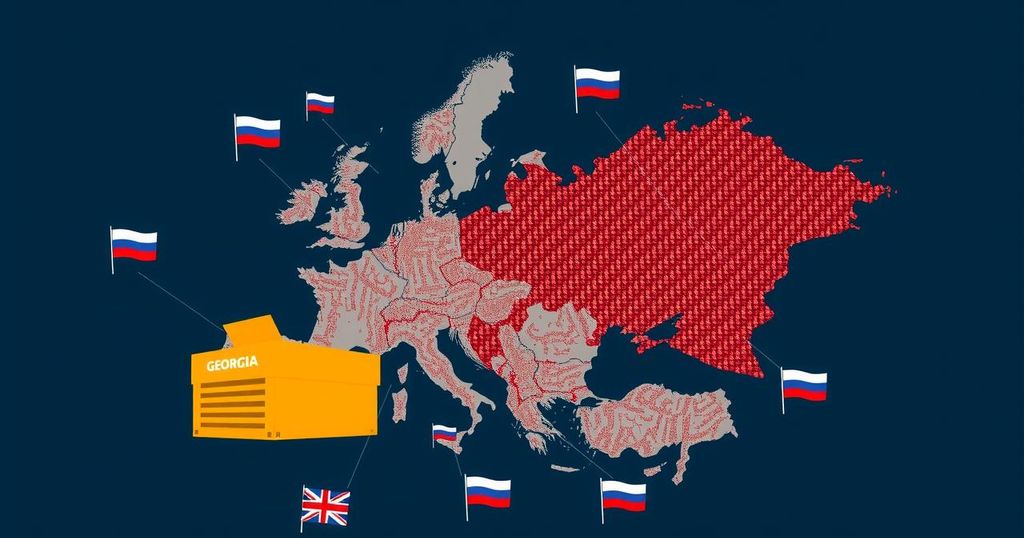Understanding Georgia’s Parliamentary Election and the Implications of Russian Influence

Georgia is preparing for a significant parliamentary election that could reshape its political orientation and foreign relations. The ruling Georgian Dream party aims to avoid conflict and maintain ties with the West, whereas opposition groups accuse it of moving closer to Russia’s sphere of influence. This election is particularly consequential given Georgia’s history and aspirations following its independence in 1991.
On Saturday, voters in Georgia, strategically located at the crossroads of Europe and Asia, will participate in a critical parliamentary election deemed the most significant since the nation’s independence from Soviet rule in 1991. This election is poised to determine whether Georgia will maintain its long-standing alignment with Western powers or forge deeper economic and political connections with Russia. The ruling party, Georgian Dream, asserts its commitment to keeping the country out of conflict, positioning itself as a stabilizing force in the region. In contrast, opposition liberal factions argue that the current administration’s policies are steering Georgia towards increased Russian influence, potentially jeopardizing its democratic progress and sovereignty. As the electorate prepares to cast their votes, the outcomes of this election will carry profound implications for Georgia’s future, particularly regarding its foreign policy direction and domestic governance.
Georgia, having emerged from the shadows of the Soviet Union, has been attempting to assert its identity and political alignment on the global stage. Historically, the nation has sought integration with Western institutions, including aspirations of joining NATO and the European Union. However, the geopolitical landscape is intricate, characterized by the looming presence of Russia, which has long viewed Caucasian nations like Georgia as spheres of influence. Recent political developments in Georgia reflect a dichotomy in public sentiment regarding foreign policy, with a growing discourse on the balance between Western partnerships and regional proximity to Russia. This election represents a crucial moment for voters to make a decisive statement regarding the country’s trajectory.
The upcoming parliamentary election in Georgia stands as a pivotal moment for the nation’s future, with the potential to realign its international partnerships. The contrasting views of the ruling party and opposition reveal a deeper struggle within Georgian society regarding its identity and allegiances. The results of this election will not only influence domestic policy but will also resonate on an international scale as Georgia navigates its position between Western aspirations and Russian influence.
Original Source: www.washingtonpost.com







